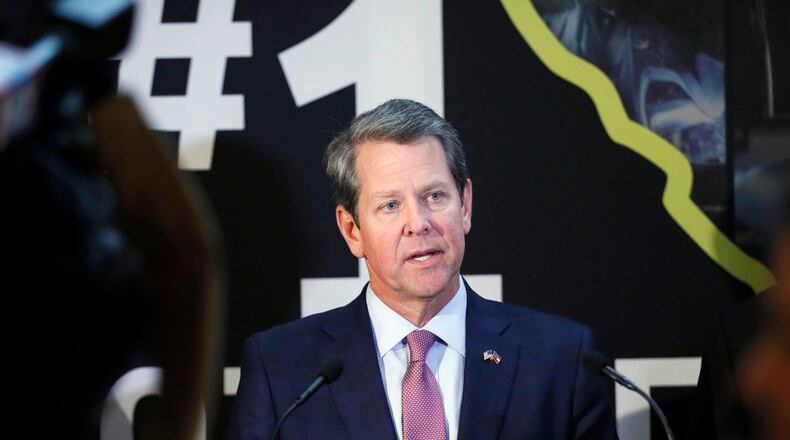The state Department of Community Health’s board on Friday voted to approve the health care waiver plans proposed by Gov. Brian Kemp with no major changes and send them to Washington for consideration.
Kemp intends to offer Medicaid coverage to the state’s very poor who are not covered now — if they meet certain requirements. The original proposal forecast that out of the state’s 400,000 or so uncovered poor, about 50,000 would end up enrolling in Medicaid or subsidized employer-based coverage under the plan.
In a much costlier program, Kemp intends to subsidize the private insurance market in Georgia to help lower the premiums of higher-income people.
The total cost of the two programs to the state and federal governments over a five-year run is forecast at over $1 billion. Providing health coverage has other financial benefits though, including hospitals that can fund their costs without eating bad debt.
DCH Deputy Commissioner Blake Fulenwider in the meeting responded to a wave of concern from Georgians who commented on the plans, as well as Georgians who praised them. Some who praised them hailed a fiscally responsible way of offering health coverage as well as rewarding beneficial behavior.
Much of the concern centered on the governor’s choice not to give Medicaid coverage to the entire population of the very poor, but to offer it on the condition that they meet certain requirements. Critics maintain that not everyone can meet those requirements. The governor disagrees.
The requirements include performing a qualifying activity such as state-approved work or college for 80 or more hours a month. Or someone designated by the government as disabled would qualify; that is a designation that is time-consuming to get and sets a strict bar.
Critics note that informal work such as full-time caretaking for an elderly relative wouldn’t qualify, and others who often would not succeed in qualifying include homeless people and addicts.
DCH board member Mark Trail said he hoped that in the future the state could consider declaring people who are in active treatment or counseling as qualifying. Currently they won’t.
The state did make some changes in response to the comments. For example, a person will no longer have to be enrolled full time in college to qualify; instead they could combine college and state-approved employment to meet the total 80 hours.
In addition, if someone has already met the standards to qualify, and then something happens to them so they no longer qualify, the state will allow temporary exemptions.
The state comment period drew more than 1,000 comments. The federal government will open its own public comment period in the new year.
About the Author





